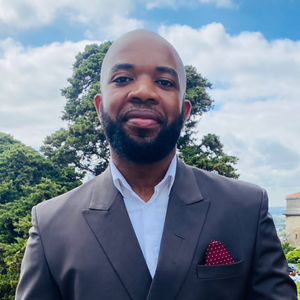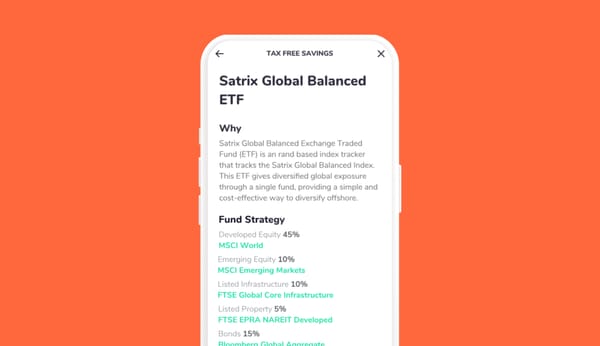I, like many other young people, have always believed that in order to build wealth, I have to either have a fat salary, know all the technical finance jargon (like “EBIDTA” and “ROI”), or come from a rich family.
While all these factors would definitely help, they are relatable to only a minority of the South African population.
In reality, many people with high incomes struggle to make ends meet, and jargon juggernauts don’t always apply their knowledge to their own financial habits. Similarly, some ‘rich kids’ squander family legacies built over generations.
All of this confirmed one thing for me: that the accumulation of wealth, or its absence, depends more on your actions and behaviour than how much money you have.
So on that note, here are the 5 misconceptions that I had to overcome on my journey to building wealth:
- You need to earn lots of money to start investing.
- School will teach you all the skills you need to be financially literate.
- You only need to learn from wealthy people.
- You need to hoard all your money.
- It's easier if you're born into a rich family.
Misconception 1: You need to earn lots of money to start investing.
Growing up in a small village in the Eastern Cape where topics like investing were as rare as finding a unicorn in your backyard, I had to find my information about building wealth another way: I read everything I could get my hands on.
Through my reading, I quickly encountered a major obstacle: I wasn't wealthy, nor did I have a steady income. It felt like stumbling upon the path to a hidden treasure, only to realise I was paralysed.
I had to filter through so much fluff to realise this assumption wasn’t true. There are beginner-friendly investment platforms, like Franc and EasyEquities, where anyone, regardless of their financial status, can learn and start investing with the little bit they have.
Misconception 2: School will teach you all the skills you need to be financially literate.
I assumed that school would teach me all the knowledge I needed to be financially literate. Oh boy, was I wrong!
Teachers, to be fair, do a splendid job of teaching us important skills like maths, reading and writing. However, they do very little to teach kids about real financial skills they need for the challenges they will face as they grow older, from doing your tax return to setting up your investments, to creating and sticking to a budget. It’s possible that they themselves don’t have a great grasp of these concepts.
If schools prioritised these practical skills, many young people would know how to handle their money better.
Misconception 3: You only need to learn from wealthy people.
Another misconception I had was that I could only learn the game of money and wealth building from wealthy people. Wrong! If I had been more self-aware, I could have saved myself a lot of money from all the personal finance books I bought. Instead, I could have scrutinised my own financial decisions, learned from myself and the people around me, and asked, ‘Are these decisions aligning with my financial goals?’
Don’t get me wrong; investing in knowledge is a wise idea. However, learning solely from wealthy individuals isn’t the only path. Consider your own financial decisions. Take a look at the friend who struggles to make ends meet but splurges on expensive clothing. Or observe the middle-class couple driving the latest BMW or Mercedes-Benz SUV, living in a fancy suburb, and sending their kids to expensive schools, yet barely breaking even due to overwhelming debt. Look at the individuals on social media attempting to portray a ‘rich’ lifestyle, only to be exposed for fraud or renting their supposed luxury possessions.
One of my favourite platforms for learning from people's financial mistakes is The Ramsey Show on YouTube. Dave Ramsey, with over 30 years of counselling experience, interviews people who made poor financial decisions. Learning from everyday people like them is invaluable. I find I relate more to their experiences than to financial advice from wealthy gurus.
Misconception 4: You need to hoard all your money.
When I started learning about investing and personal finance, I found myself hoarding money excessively. I’d deprive myself from going out for months. I would refrain from buying myself takeaways—not even for health reasons—because every purchase felt like a waste of money.
We often beat around the bush when discussing concepts like investing and compound interest. While these factors are important, they don’t negate the fundamental truth that money, whether saved or invested, is ultimately meant to be spent.
This doesn’t mean indulging in reckless spending, but there's nothing wrong with rewarding yourself occasionally. I’ve found that even giving money to someone in need can be more fulfilling than keeping it to yourself.
So, while it’s important to be disciplined with your finances, don’t forget to enjoy life. It’s okay to spend money on things that bring you happiness or fulfillment.
(I almost said YOLO, but that might be misunderstood as an excuse to splurge recklessly. Please, exercise discipline.)
Misconception 5: It's easier if you're born into a rich family.
Easier said than done, huh? I doubt there is any human being who has never felt envious towards another human being’s traits or achievements.
I’m sure most people would agree they’d prefer to be born into wealth rather than into poverty. Who wants to be poor? For resilience? Lol, I am not laughing.
I’ll be the first to admit that there have been many times I wished I was born into a wealthy family, especially on days when there was more month left at the end of the money. However, being born into wealth, while incomparably better than coming from poverty, also comes with its own set of challenges:
- You’re under immense pressure to succeed or live up to very high standards because of your parents.
- If you join the family business, you have to maintain the same high standards as your parents, or risk squandering the family’s wealth and tarnishing the family name for future generations.
It took me a while to accept myself as I am—a regular kid from a small village in the Eastern Cape—and realise that nothing will ever change that fact. The optimistic truth, however, is that I won’t end up where I come from, and the same can be said for all of us.
What’s most important is that we accept who we are and work diligently through our financial behaviours to ensure our stories have happy and 'compounding endings'.
You have 24 hours in your day like everyone else and you have total control to learn as much valuable personal finance content as possible so that your future self will thank you.







![How & Why You Should Do a Financial Reset [+ downloadable financial reset journal]](/blog/content/images/size/w600/2024/12/Setting-goals-for-the-year.png)


